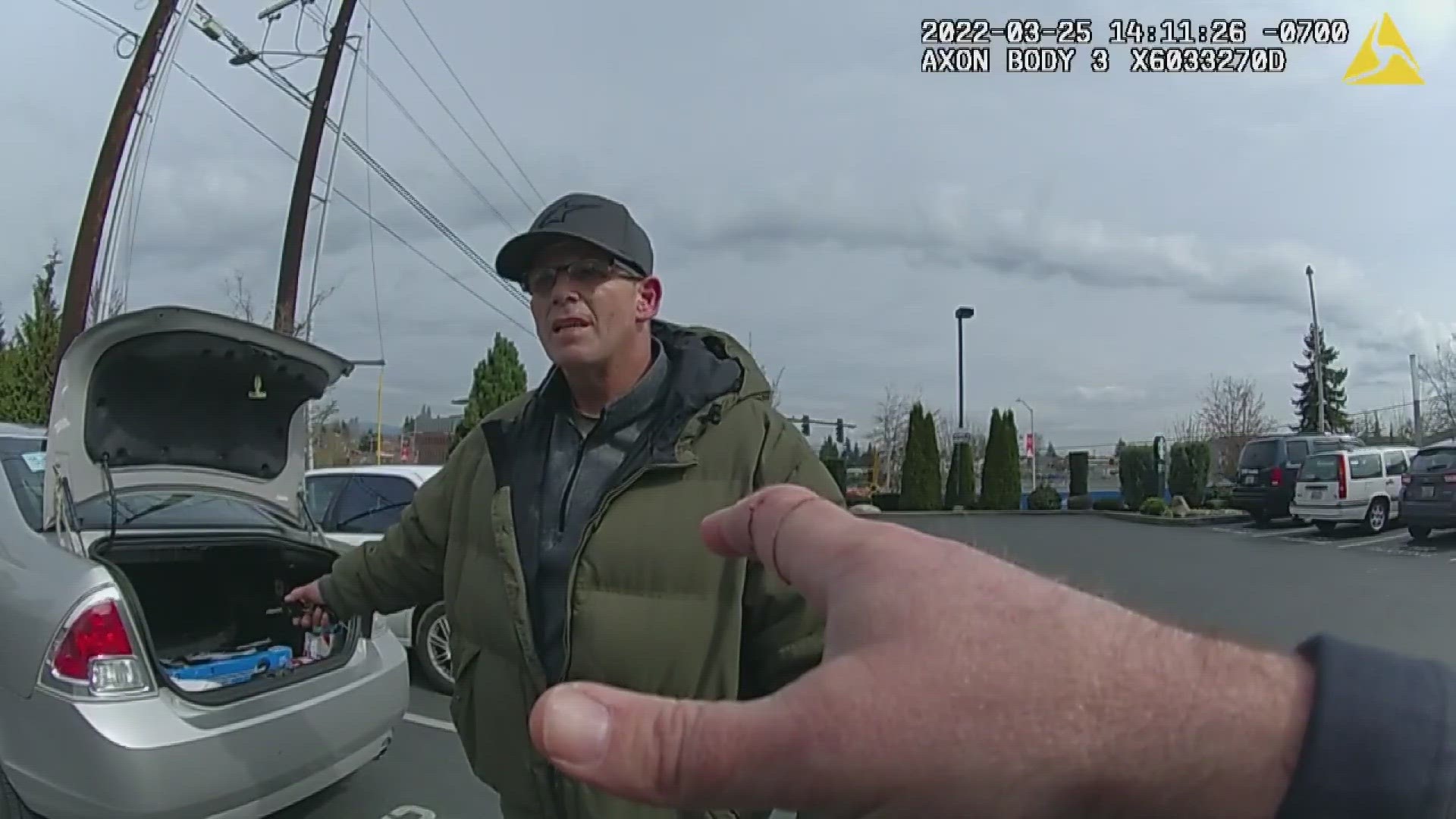EVERETT, Wash. — Jury selection started on Tuesday in the trial of Richard Rotter, the man accused of killing an Everett police officer.
He is charged with aggravated first-degree murder for the killing of Everett Police Officer Dan Rocha.
The day began with a jury pool of 200 people and will eventually be whittled down to 12.
Judge Bruce Weiss prohibited cameras from recording Rotter's face during the jury selection portion of the trial, so as not to taint any potential jurors.
Prosecutors say on March 25, 2022, Rocha saw a man moving guns between two cars outside a north Everett Starbucks.
Rocha activated his body camera and approached.
The video shows Rocha was calm as he asked the suspect what was happening. Then a struggle ensued.
Rocha was shot three times in the head. The suspect then ran over Rocha’s body before being arrested after a brief chase through downtown Everett.
While the scene was recorded on video, Seattle University law professor Deborah Ahrens says the body cam may not tell the whole story.
"The body camera is on the officer," she says. "It won’t necessarily show you the point of view of the defendant."
The camera captures the officer’s killing.
It may seem complicated to mount a defense against that, but Ahrens, a former public defender, says there are options.
"It would probably be he had some sort of mental infirmity at the time. Perhaps he had diminished capacity. Maybe he was legally insane at the time, or alternatively, he was acting in self-defense," posited Ahrens.
Tuesday, an initial questioning of 56 jurors found 29 had heard of the case and 15 said they either couldn’t be impartial or left the question blank.
Rotter's public defenders had previously asked for the trial to be moved to another county. The judge refused.
Ahrens says it could be difficult for Rotter to get a fair trial in Snohomish County considering all the publicity, as well as Rocha’s strong ties to the community.
"It is going to be a high profile case where people probably have connections to the officer or at the very least are going to be sympathetic to the police officer," she says. "It’s going to be interesting to see if he can get a fair trial given the nature of the victim. I think that is always very difficult," Ahrens says.
The trial is expected to last approximately a month. It's tentatively slated to begin in early April.
If convicted, Richard Rotter faces life in prison without the possibility of parole.

